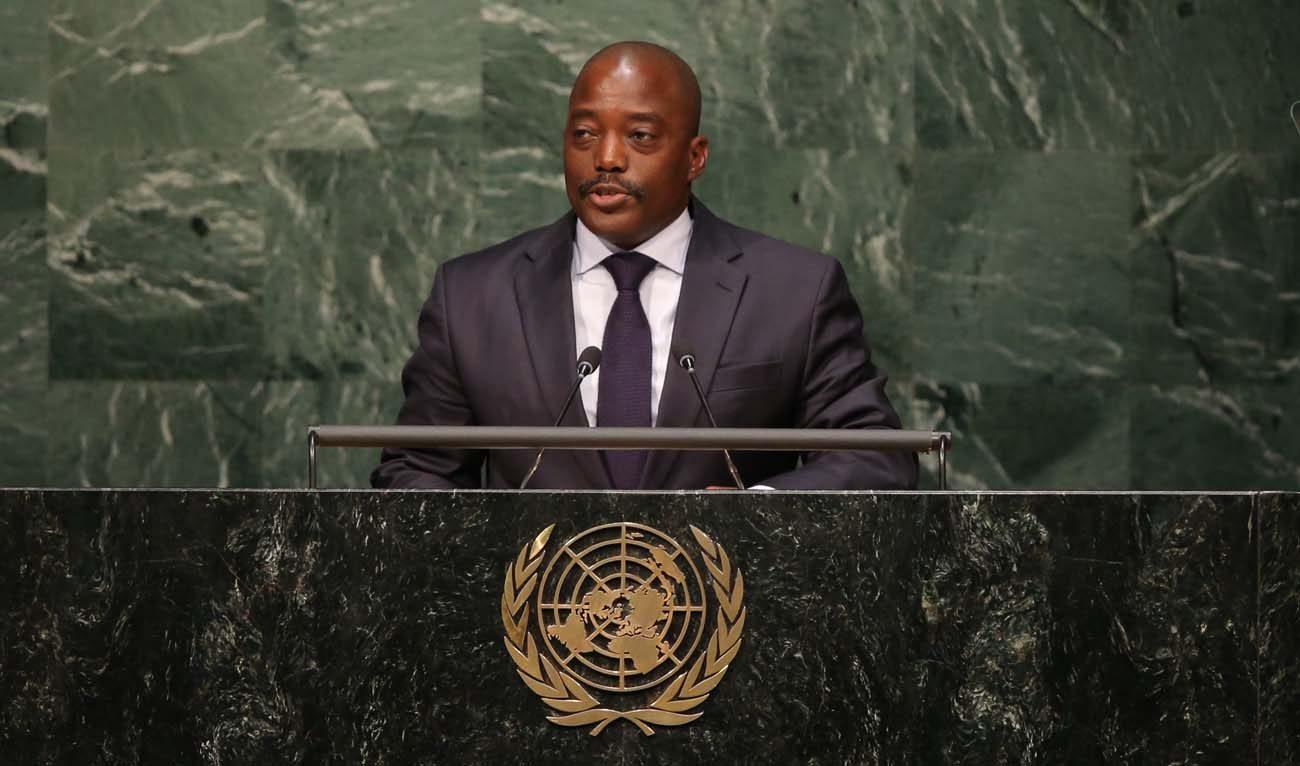KINSHASA, Congo (CNS) — Catholic bishops in Congo have warned of chaos if government and opposition leaders fail to agree to a timeline for elections, and they reiterated their commitment to help arrange a compromise.
“Despite all divergences, we believe a political compromise is still possible if the main parties get involved and prove their goodwill around the table,” the bishops’ conference said in a Dec. 2 statement.
“The hour is truly grave — and this is why, true to our prophetic mission and, summoning the Congolese people and international community as witnesses, we appeal for responsibility to prevent our country sinking into an uncontrollable situation.”
[hotblock]
The statement, co-signed by Archbishop Marcel Utembi Tapa of Kisangani, the bishops’ conference president, was published as opposition groups prepared for mass demonstrations Dec. 19, the date President Joseph Kabila was to have left office.
On Nov. 17, Kabila appointed an opposition member of Parliament, Samy Badibanga, as premier of a national unity government, which will be tasked under an October accord to organize presidential elections in April 2018.
However, other opposition leaders have insisted that Kabila cannot stay in power beyond his second and final term.
The bishops said their mission to mediate had been encouraged “by the president himself and all political actors — both those who’ve participated in the national dialogue organized by the African Union, and those who haven’t.”
“The bishops’ conference has met the various parties to listen and receive their proposals, with the aim of reconciling all viewpoints and finding a peaceful exit from this crisis,” it said.
In August, the bishops’ conference launched a mediation bid after opposition leaders accused Kabila of seeking to delay autumn elections. The bishops withdrew from a national dialogue in October, after Congo’s electoral commission claimed voter lists had not been updated.
[hotblock2]
In their statement, the bishops said talks had shown there were “many points of convergence” among the main political factions, but still differences over “understanding the concept of respecting the constitution” and “finding a political compromise.” They said unresolved issues included financing of the election process, the independence of electoral officials and the functioning of institutions during the transition.
In late September, Pope Francis received Kabila at the Vatican, a week after security forces dispersed opposition protesters in Kinshasa, killing 49 and injuring and arresting hundreds more. In late November, the pope urged Congo’s political and religious leaders to take “every action to build bridges” and “install a culture of dialogue in Congolese society.”
Catholics make up about half of the 67.5 million inhabitants of the mineral-rich Congo.
PREVIOUS: Helping others realize their potential is good business, pope says
NEXT: Despite distance, Iraqi Christians keep the spirit of Christmas alive




Share this story